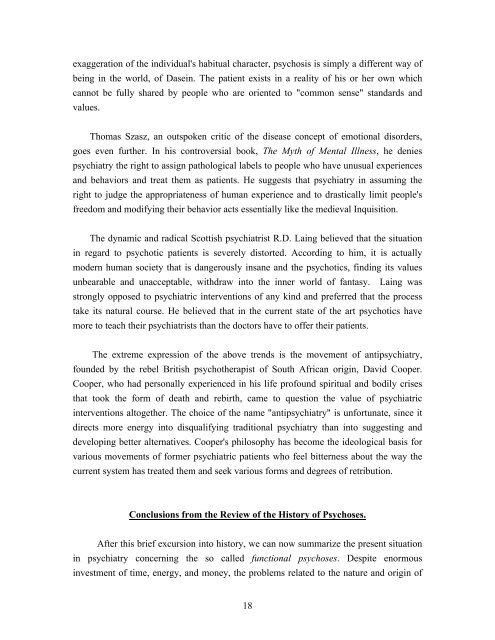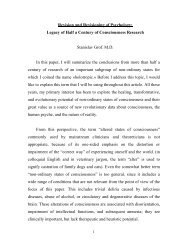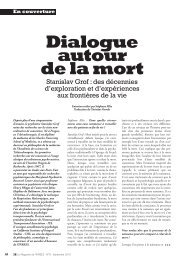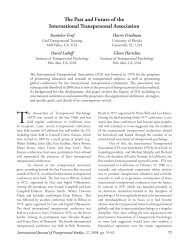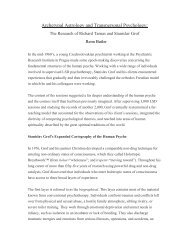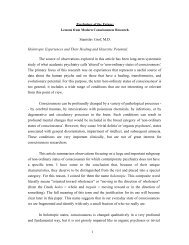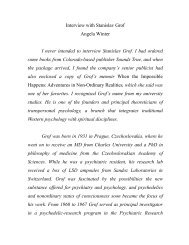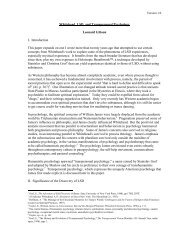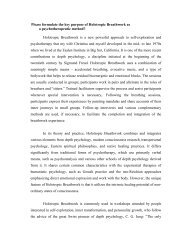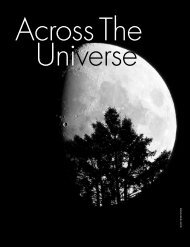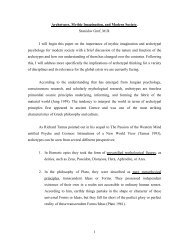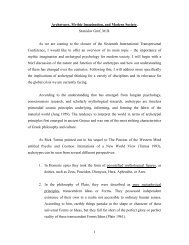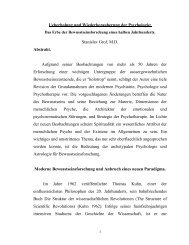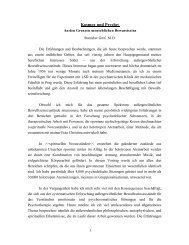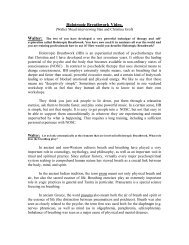1 PSYCHOSIS AND HUMAN SOCIETY: A Historical ... - Stanislav Grof
1 PSYCHOSIS AND HUMAN SOCIETY: A Historical ... - Stanislav Grof
1 PSYCHOSIS AND HUMAN SOCIETY: A Historical ... - Stanislav Grof
You also want an ePaper? Increase the reach of your titles
YUMPU automatically turns print PDFs into web optimized ePapers that Google loves.
exaggeration of the individual's habitual character, psychosis is simply a different way of<br />
being in the world, of Dasein. The patient exists in a reality of his or her own which<br />
cannot be fully shared by people who are oriented to "common sense" standards and<br />
values.<br />
Thomas Szasz, an outspoken critic of the disease concept of emotional disorders,<br />
goes even further. In his controversial book, The Myth of Mental Illness, he denies<br />
psychiatry the right to assign pathological labels to people who have unusual experiences<br />
and behaviors and treat them as patients. He suggests that psychiatry in assuming the<br />
right to judge the appropriateness of human experience and to drastically limit people's<br />
freedom and modifying their behavior acts essentially like the medieval Inquisition.<br />
The dynamic and radical Scottish psychiatrist R.D. Laing believed that the situation<br />
in regard to psychotic patients is severely distorted. According to him, it is actually<br />
modern human society that is dangerously insane and the psychotics, finding its values<br />
unbearable and unacceptable, withdraw into the inner world of fantasy. Laing was<br />
strongly opposed to psychiatric interventions of any kind and preferred that the process<br />
take its natural course. He believed that in the current state of the art psychotics have<br />
more to teach their psychiatrists than the doctors have to offer their patients.<br />
The extreme expression of the above trends is the movement of antipsychiatry,<br />
founded by the rebel British psychotherapist of South African origin, David Cooper.<br />
Cooper, who had personally experienced in his life profound spiritual and bodily crises<br />
that took the form of death and rebirth, came to question the value of psychiatric<br />
interventions altogether. The choice of the name "antipsychiatry" is unfortunate, since it<br />
directs more energy into disqualifying traditional psychiatry than into suggesting and<br />
developing better alternatives. Cooper's philosophy has become the ideological basis for<br />
various movements of former psychiatric patients who feel bitterness about the way the<br />
current system has treated them and seek various forms and degrees of retribution.<br />
Conclusions from the Review of the History of Psychoses.<br />
After this brief excursion into history, we can now summarize the present situation<br />
in psychiatry concerning the so called functional psychoses. Despite enormous<br />
investment of time, energy, and money, the problems related to the nature and origin of<br />
18


